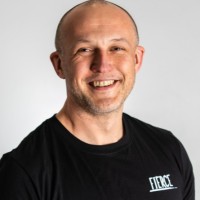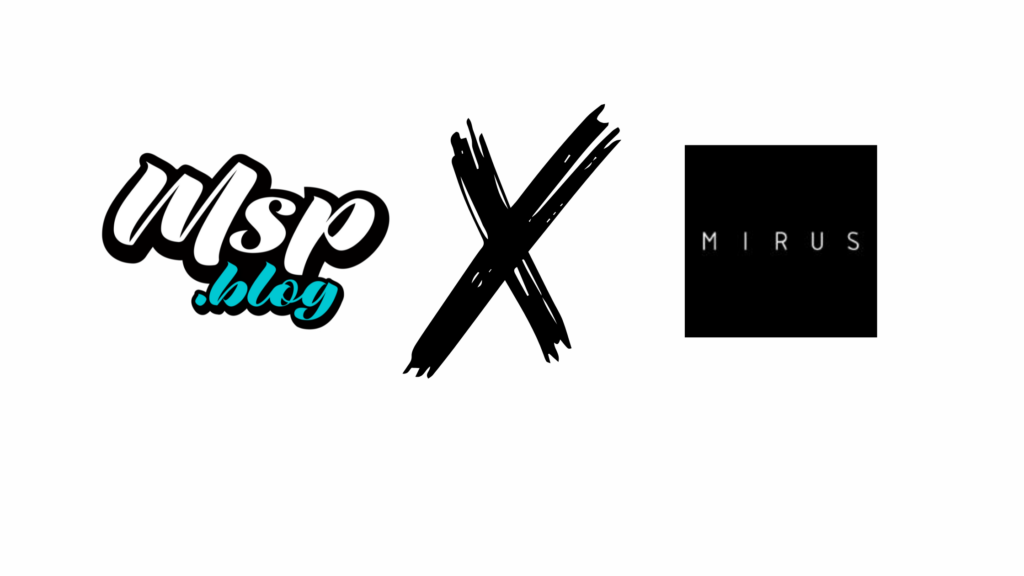
What was your MSP and when did you start it?
I started my first business when I was 18/19, the business was an IT services business focussed on completing projects, ranging from IT support, basic development work and even electrical safety testing. The business had no recurring revenue and unfortunately ceased trading after a few years. I became personally bankrupt and decided to move away for a fresh start.
Following a four-year break to Ireland working for an IT services business, I returned to the UK to create an IT business which was focussed on generating recreating revenue. So in 2002 when I founded Mirus I think we were one of the first support businesses which such a huge focus on recurring income. The focus was so great that we would role all changes, projects etc… into a fixed monthly agreement, it led to increased MRR and stickiness with our customers, also by adding in the labour for migration projects or new servers it meant getting someone to switch providers was easier. This landgrab approach with removing labour billing stopped after a few years but we always kept the huge focus on MRR throughout the time I owned the business.

Can you explain a little about the business?
We were (and Mirus remains) an IT services business predominantly focussed on SMEs in the UK (with sone overseas clients). As a Microsoft partner we would focus on all of the mainstream technologies, more recently that would be Office 365 and Azure, but over the years we’ve done some Novell, Linux, Citrix etc… at its height I believe we had around 120 staff (we were overstaffed, not an issue people are facing now with the shortage of talent in the sector)
Mirus was always Milton Keynes based although we had a regional office in London for a few years, but in the end, we felt supporting London clients from Milton Keynes worked well. Under it’s new ownership the staff are spread a little further afield.
Mirus currently turns over circa £15 million
Were you always planning on an exit and what was the driver to exit?
We did a little bit of both along the way 😊
We acquired a few smaller IT businesses, these didn’t go exceptionally well as we were buying businesses smaller than our own who had clients who were not really suited to working with a larger business and we ended up losing a lot of those clients as our commercial model wouldn’t work for them.
A really successful acquisition we made was for a Managed Print company, through this acquisition we gained a huge number of new customers, a new product we could sell to our existing customers and an exceptional team we could integrate into our business. This was also an incredibly profitable business with a healthy EBITDA which contributed to our own successful exit.
In terms of our own exit, we approached this a number of times through the years, in the early days there were some changes in shareholders as our own personal priorities changed.
Suffering a bit of entrepreneurial burnout, I looked to exit a number of times, but as we went through the process we felt we were being undervalued by the acquirer and the price was being chipped away due to failings or perceived failings in the business. Each time we stopped the sale process we would then go away and evaluate the reasons the price was reduced and work-out a plan to address these perceived issues. Things were going pretty well and an immediate exit was shelved.
We knew that at some point to grow further we would need to consider some additional funding to support further growth , I also knew I probably wasn’t the right person to be a CEO of a company which was on course to turnover £20million per annum (I believe Mirus is still on course to do this) becoming a PE backed business would still leave me in a role I didn’t feel would be suited to my skillset so I decided to look for an exit. We had a number in mind and if I’m honest didn’t believe we’d achieve that number for the business yet, however we got chatting a potential acquirer who we felt would provide a good home for the team and importantly could see the value in the business, so were happy to pay a fair price for the business.
How did you find your acquirer and what did the process look like?
They reached out to us, I’d like to think we as a business had a good reputation and also my own reputation within the industry was pretty good (This isn’t meant to sound arrogant)
The process wasn’t too bad
- Initial Chat
- We engaged Grenport to assist us preparing an information memorandum to ensure all information was accurately communicated and the true value of the business was presented.
- Some Financial due diligence
- Some operational due diligence
- Lots of contracts
- Then we finished with a session at their lawyers signing the documents
- We then celebrated over a beer, and I presented the key individuals involved an engraved spanking paddle as a memento to mark the transaction.
Can you tell us a little about your exit?
We’d worked hard over the years prior to completing the transaction to separate me from the day-to-day tasks within the business, however I remained with the business for a year or so after the transaction completed, initially the plan had been for me to remain longer but with an excellent management team around me I didn’t need to remain any longer.
We’ve parted terms on a positive note, I think looking back if I had of remained for longer I probably would have gotten in the way with the plans to further integrated the business and move it onto what it has become.
What was the main thing you learned about M&A going through the process?
- Our processes were key to highlighting what a solid business we were
- Regular audits showed the governance in the business and gave the buyer confidence
- Ensure you’re on top of your tax and there’s no grey areas
Knowing what you know today, what would you have done differently?
I don’t think I would have changed the exit, I feel we got a good value for the business and they paid a fair price, I think everyone won in the deal and through the EMI scheme we had in place our long term employees also benefitted.
Is there any advice or things to watch out for that you would like to share with fellow MSP owners?
In smaller businesses I think the focus on detaching yourself from the day to day is going to be key, but good processes and a strong management team will really help with this.
What are you up to now and how can people find out more?
My life is very different now!
Myself and my wife own and operate a 20,000 sqft gym in Milton Keynes – You can find out more here: Fierce Gym Milton Keynes – Fitness, Bodybuilding & Powerlifting
I’ve been working on some property development projects.
A little bit in commercial and residential property rentals.
The odd day mentoring some up and coming MSPs, & of course being a dad to my three great kids

